Kate Cohen-Posey – Neuroscience for Clinicians: Brain Change for Anxiety, Trauma, Impulse Control, Depression and Relationships
$219.99 Original price was: $219.99.$43.00Current price is: $43.00.
[Instant Download] – You will receive instant download access after the purchase
- Faculty:
- Kate Cohen-Posey
- Duration:
- 6 Hours 9 Minutes
- Format:
- Audio and Video
- Copyright:
- Apr 27, 2016
Description
| Manual (3.14 MB) | 50 Pages | Available after Purchase |
Outline
Brain centers and neural pathways
- Find brain centers in the palm of your hand
- Rate where you and your clients fall on the reactivity scale
Brain-based strategies for common disorders: stress
- How stress alters the nervous system
- Bottom up (brain stem) regulation
- 8 tricks to calm the stress/fear pathway and strengthen the calm/alert pathway
- Breathe it to leave it exercises
- Find the fast-acting dive reflex
Anxiety and anger
- The anxious/angry brain reaction
- Horizontal (Brocca’s area) regulation
- Use words to calm reactivity
- Notice and narrate: name it to tame it
- 10 disorders that cause anger danger
- Panic disorder—turn off adrenalin
- OCD—Turn on dopamine to get unstuck
- Two minute hybrid yoga/mindfulness exercise to reduce reactivity
Depression
- The depressed brain pattern
- Top down (cortical) regulation
- Dopamine to dampen depression
- Brain structures in a heightened learning state
Trauma
- The traumatized brain
- Regenerate the hippocampus
- New treatments for trauma
- Integrate traumatic memories
- Trauma-informed chair yoga
Impulse control disorders
- Brain areas involved in impulsive behavior
- Distinguish compulsions from impulsiveness
- Identify the positive feeling state
- Rewire the reward pathway
- Practice mindfulness of urges
Transform brain research into interventions
- Change the brain’s negative bias
- Externalize & personify negative thoughts
- Rapidly activate centers for positive emotions
- No-fail homework assignments
- 4-step method to overcome negative self-talk: demonstration and practicum
- Replace controlling, critical inner voices with compassion and curiosity
- Use memory tricks to increase mindfulness
- Learn the prerequisite for deep therapeutic change
- Mix everyday tech savvy with neuroscience
Interpersonal neurobiology: the social brain
- Identify client attachment style
- Change reactions into responses
- How individuation can cause primal panic
- Learn the untold truth about assertiveness
Stop the vicious cycle of insecure attachment
- Change attack/defend, pursue/distance interaction patterns
- Demonstration: how to breathe calm into life’s cruel moments
- Affirm to calm and bond with oxytocin
- Ask questions: from fight to forethought
- Actively listen: from anger to containment
- Hidden hints: use soothing hypnotic language
- Observe non-verbal Aikido demonstration
- Practice text role-plays
- Learn a protocol for disarming responses
- Applications for parents, spouses, toxic families, and the workplace
Faculty
Kate Cohen-Posey, MS, LMHC, LMFT Related seminars and products: 4
Kate Cohen-Posey, MS, LMHC, LMFT, is the director of Psychiatric & Psychological Services in Lakeland, FL and has 40 years of clinical experience. She is the author of several books: Her best-selling client handout books offer concise information on common disorders and relationship problems; Making Hostile Words Harmless teaches how to disarm attack-defend-withdraw neural pathways and is endorsed by Stephen R. Lankton, protégé of Milton Erickson; Empowering Dialogues Within gives more than 50 examples of brain change strategies by wiring negative brain centers with their counter parts in the positive frontal lobe through dialogue. She is the inventor of the Handy Brain Model – a teaching tool that makes complex neurological information understandable. Kate has a knack for integrating wisdom from CBT, Ericksonian hypnosis, Gestalt, Ego State, EMDR, Somatic, and Brain-spotting therapies with knowledge emerging from neuroscience and brain imaging studies. She has also studied with the Hokori-Ji Zen Center and has been practicing yoga for many years.
Delivery Method
– After your purchase, you’ll see a View your orders link which goes to the Downloads page. Here, you can download all the files associated with your order.
– Downloads are available once your payment is confirmed, we’ll also send you a download notification email separate from any transaction notification emails you receive from imcourse.biz.
– Since it is a digital copy, our suggestion is to download and save it to your hard drive. In case the link is broken for any reason, please contact us and we will resend the new download link.
– If you cannot find the download link, please don’t worry about that. We will update and notify you as soon as possible at 8:00 AM – 8:00 PM (UTC+8).
Thank You For Shopping With Us!
Be the first to review “Kate Cohen-Posey – Neuroscience for Clinicians: Brain Change for Anxiety, Trauma, Impulse Control, Depression and Relationships” Cancel reply
Related Products
Medical & Health
Medical & Health
Medical & Health
Medical & Health
Jennifer Sweeton – Trauma, PTSD & Traumatic Grief: Effective Assessments and Immediate Interventions
Medical & Health
Medical & Health



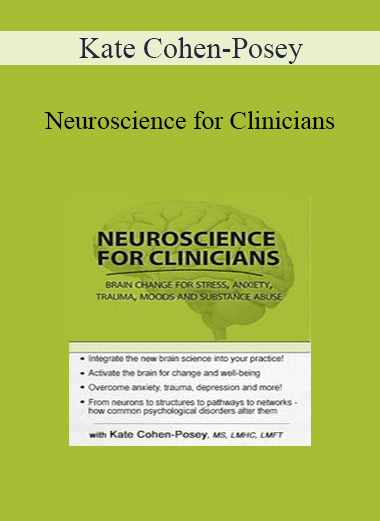
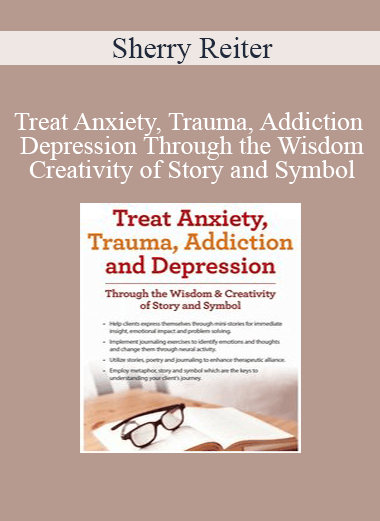
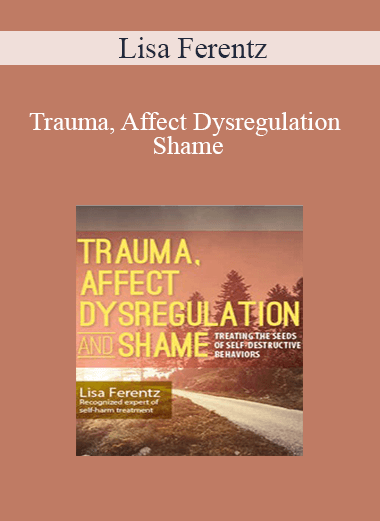
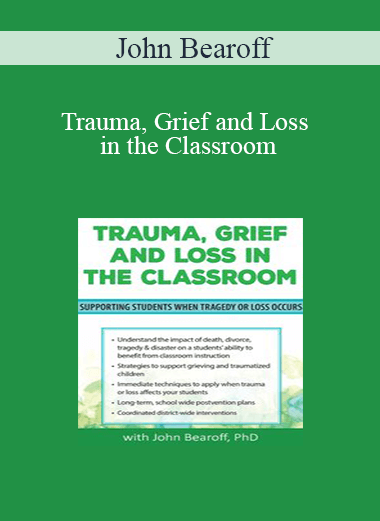
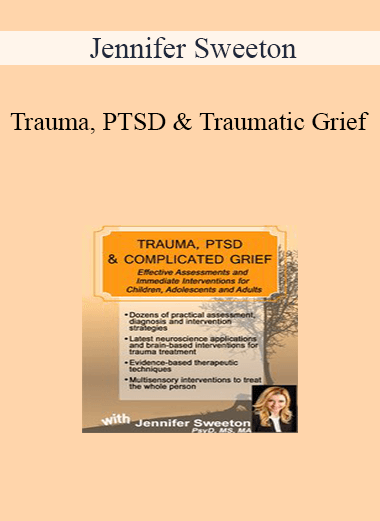
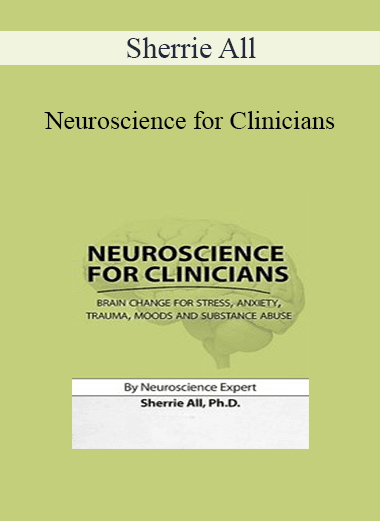
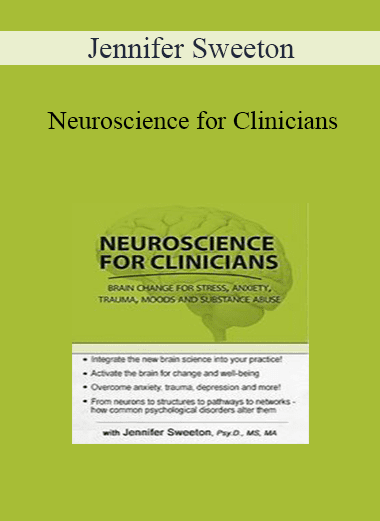
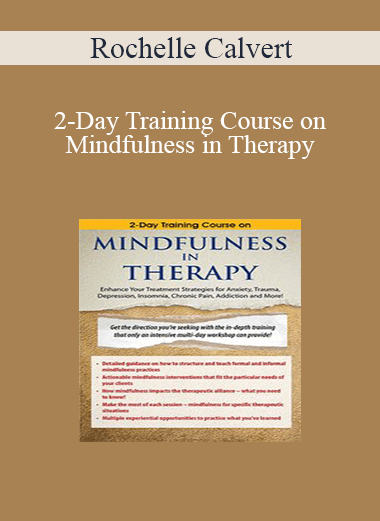
![[Audio Download] EP13 Point/Counter Point 10 - Trauma](https://imcourse.biz/wp-content/uploads/2022/02/Audio-Only-EP13-Point-Counter-Point-10-Trauma-Spiritually-and-Recovery-Donald-Meichenbaum-PhD.png)

10 reviews for Kate Cohen-Posey – Neuroscience for Clinicians: Brain Change for Anxiety, Trauma, Impulse Control, Depression and Relationships
There are no reviews yet.